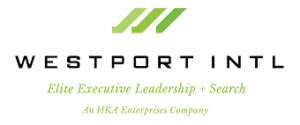The Hiring Mistake Dilemma
As leaders, we all have experienced the dreaded hiring mistake. You thought you hired the perfect person and six weeks in, you are scratching your head wondering how you made such a bad hiring decision. You then do the mental gymnastics of going through a post-mortem on your assessment process only to find out that there wasn’t anything you can point to that should have been the Ahaa moment telling you not to hire that person.
Hmmm… you had a team of people interview, everyone was on the same page about the job criteria and the skills/competencies needed, and, you even did a team consensus meeting where all interviewers compared notes and thought the person was the perfect “fit” for your company! Stymied and frustrated, you shake your head again for the third time and make a vow for no more repeat performances of that particular nightmare! But wait, what about that thing called “fit”…
You thought you were assessing the candidate against the competencies or characteristics that were important in your culture, right? But were you really? Many organizations today have standard competencies or characteristics that they use to assess potential new hires. Sometimes, these can be more of ideals than the actual reality that’s reflective of high-performers in your organization today.
For example, your organization states that it is looking for people who will challenge the status quo and take risks – these are important competencies for your organization (at least, that’s what it says in your talent management process, right?) In reality, with a hard look in the mirror, the high-performers in your organization are individuals who actually don’t overly challenge the status quo but instead make incremental improvements vs. revolutionary change. And, guess what, you hired a person with a history of being a ‘challenger’ who lives for large scale change. So maybe it’s really no surprise that they are struggling to adapt to your culture and are being labeled a “hiring mistake.”
The companies that are the most successful at talent acquisition are the ones who take a hard look in the mirror and understand exactly what makes their current high-performers successful. From there, they translate those learnings into assessment questions that delve deep into those areas. While it sounds simple, it can be challenging but it can also be the key to greatly increasing your new hire engagement or “fit.” Maybe it’s time to keep that vow and challenge the reality of your assessment process!


